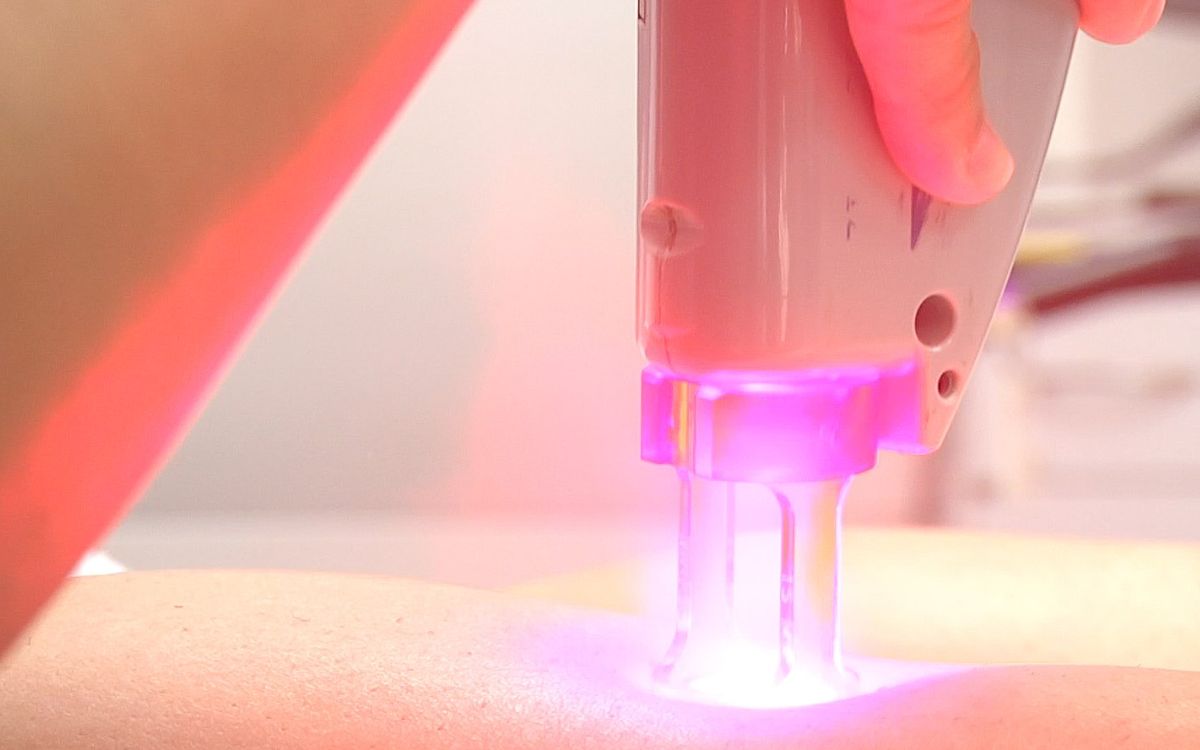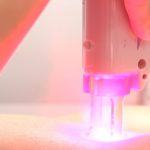By Nathalie Boudet-Gizardin, Lawyer counsel and Mathilde Jannet, Lawyer
The jurisprudential saga continues: initially sanctioned by the Council of State, then confirmed by the Criminal Chamber of the Court of Cassation, it is the turn of the Civil Chamber to ratify the end of the monopoly of doctors in matters ofhair removal in pulsed light.
Alignment of administrative and judicial case law
The practice of acts of hair removal with pulsed light by non-medical people has been no longer illegal for criminal courts for a long time. judgment rendered by the Criminal Chamber of the Court of Cassation on March 31, 20201.
Indeed, as we had already mentioned in an article of May 25, 2020, in this judgment, the Criminal Chamber of the Court of Cassation aligned itself with the position established by the Council of State in matters of hair removal. pulsed light.
As a reminder, in this case, the Criminal Chamber was seized of the question of whether non-medical people, performing acts of hair removal with pulsed light, could be punished for the offense of illegal practice of medicine.
By answering in the negative, the high criminal court made a clear reversal of case law, concerning the practice of acts of hair removal with pulsed light, by considering that the prohibition made to persons other than doctors to perform such acts violated Articles 49 and 56 of the Treaty on the Functioning of the European Union (TFEU), guaranteeing the freedom of establishment and the freedom to provide services.
By taking up the various arguments raised by the Council of State, the Criminal Chamber undoubtedly aligned itself with the position adopted by the administrative judge in a judgment rendered by the 1st and 4rd assembled chambers of the Council of State, November 8, 20192. Let us recall that in this judgment, the Council of State had declared the illegality, under European law, of the decree of January 6, 1962 reserving the practice of hair removal with laser or pulsed light to doctors only (cf. our article published on January 16, 2020).
However, the solution adopted by the Criminal Chamber of the Court of Cassation differs from that adopted by the Council of State, in that it restricts the contribution of its decision to the sole activity of hair removal using pulsed light. , without commenting on acts of laser hair removal, for which doubts continue to hover ... even though the decision of the Council of State referred to the two types of hair removal acts.
In a second noticed judgment of October 20, 20203, the Criminal Chamber had the opportunity to confirm its position.
In this case, natural and legal persons were prosecuted before the Correctional Court for the illegal practice of medicine, for having practiced and allowed to practice acts of hair removal with pulsed light in beauty salons, without having the diploma. doctor.
The Rennes Court of Appeal having confirmed this conviction for the illegal practice of medicine in a judgment of September 18, 2019, the defendants appealed to cassation.
In its judgment of October 20, 2020, the Court of Cassation quashed the judgment rendered by the Rennes Court of Appeal, without reference, by repeating, identically, the terms of its principle of March 31, 2020.
Indeed, after recalling that "The Council of State, in a judgment of November 8, 2019 (n ° 424954), considered that the prohibition of hair removal with pulsed light by beauticians ignores, insofar as it reserves these methods of hair removal only to doctors of medicine, the freedom of establishment and the freedom to provide services guaranteed by Articles 49 and 56 of the TFEU ", The judges considered that:
- ' first, said prohibition is not justified since the devices in question can be acquired and used by private individuals and their use is authorized by estheticians for photorejuvenation treatments which present risks identical to those concerning the hair removal;
- secondly, if hair removal with pulsed light is likely to have mild adverse effects, according to the report and opinion of the National Health Security Agency (ANSES) of October and December 2016, and to be subject to restrictions for reasons of general interest, it does not follow that these acts of hair removal can only be carried out by a doctor;
-In addition, the French government has notified the European Commission of a draft decree opening the practice of pulsed light hair removal to beauticians under certain training conditions ».
Since then " in the light of those elements, it must be considered that the ban on hair removal with pulsed light by persons other than doctors is contrary to the aforementioned articles of the TFEU. It follows that the defendants cannot be legally convicted of illegal practice of medicine.».
These successive reversals of jurisprudence have recently prompted the National Disciplinary Chamber of the Order of Physicians (CDNOM) to show more leniency towards doctors who have practiced in laser hair removal centers alongside non-doctors illegally practicing laser hair removal.
Indeed, in two decisions issued on October 21, 20214, the CDNOM considerably reduced the sanctions pronounced by the Disciplinary Chamber of First Instance of Ile-de-France (CDPI) against two doctors prosecuted for complicity in the illegal practice of medicine, for having "covered" acts of laser hair removal performed by beauticians not authorized to do so, the facts being prior to the case law of the Council of State of November 8, 2019.
The CDPI then pronounced, against the two doctors, the sanction of the ban to practice medicine for one year, including six months suspended, in the first case (n ° 13860) and that of the deletion of the table of the Order of Physicians, in the second case (n ° 13960).
However, in the first case (no.13860), the CDNOM considered that it had not been demonstrated that the doctor in question would have facilitated the illegal practice of medicine since this doctor “ herself performed the acts of hair removal on patients referred by the center or encountered in the context of replacements carried out as general practitioner ". However, given the failure to communicate his contract to the Departmental Council of the Order of Physicians within the legal period of one month, the CDNOM imposed the sanction of the warning on him.
In the second case (no.13960), the CDNOM considered that the appellant doctor was founded “ to avail itself of the decision of November 8, 2019 by which the Council of State ruled that the decree of January 6, 1962 establishing the list of medical acts that can only be performed by doctors violates the freedom of establishment and the freedom provision of services, as the 5 ° of its article 2 reserves the methods of hair removal with laser or pulsed light to doctors of medicine, to rule out the complaint retained by the first judges of disregard of article R.4127 -30 of the public health code And only pronounced a reprimand against him.
In addition, in these two cases, the doctor concerned had left the laser hair removal center when he became aware of the dysfunctions of the latter, linked to the practice of laser hair removal by unauthorized beauticians, a circumstance which been taken into account by the CDNOM to reduce the sanction imposed.
Alignment of criminal and civil case law
While the position adopted by the criminal judge concerning the practice of pulsed light hair removal by non-medical people is now well established, the question remained at the civil level: would the Civil Chamber align itself with the solution adopted by the Criminal Chamber?
Entering two cases relating to franchise contracts, the First Civil Chamber of the Court of Cassation came to provide, May the 19 20215, a new building block for the development of case law, which is already well underway.
In this case, a franchise contract had been concluded between a company (the franchisor) and a natural person (the franchisee) who wished to open an aesthetic institute to practice, among other things, acts of hair removal with pulsed light.
Not having obtained the hoped-for financing, the franchisees, in both cases, invoked, with a certain bad faith, the nullity of the franchise contract for unlawful cause. They argued that the practice of pulsed light hair removal by non-doctors, proposed by the franchisor, was an illicit activity falling under the illegal practice of medicine, and that, therefore, it was not susceptible to be the subject of an agreement.
In the first case (n ° 19-25.749), the Court of Appeal concluded that the franchise contract was legal.
To reach such a solution, the trial judges showed a certain daring, considering that:
- « concerning pulsed light hair removal, the contradictory texts of the public health code governing this area must be interpreted in the light of the European regulation EU 2017/745 of 5 April 2017 adopted which will soon be applicable in the sector of the disputed devices, in particular its Article XVI, paragraph 5, which does not assimilate pulsed light equipment used on the human body to medical acts ";
- many pulsed light hair removal centers are open without the public authorities banning their activity and pulsed light hair removal devices are freely available to the public;
- no implementing decree as referred to in Article L. 1151-3 of the Public Health Code6 intervened to prohibit the use of pulsed light devices for aesthetic purposes.
In the second case (n ° 20-17.779), the Court of Appeal, on the other hand, declared the nullity of the franchise contracts on the grounds that they had an illegal cause, thus refusing to follow the meaning of the aforementioned reversals of case law.
It is without great surprise that the judges of the First Civil Chamber rejected the appeal formulated by the franchisee in the first case, and quashed the judgment rendered by the Court of Appeal in the second case, on the grounds that:
« the practice by a non-medical professional of pulsed light hair removal is no longer illegal and that, although it may be subject to restrictions for reasons of general interest, it does not justify the cancellation of the contracts that this professional was able to conclude on the sole grounds that they relate to such a practice ».
To achieve this very predictable reversal of jurisprudence, the civil judges relied on the solution identified by the Criminal Chamber, a few months earlier, which had held that "Non-medical people practicing pulsed light hair removal could not be legally convicted of illegal practice of medicine ».
Opening up the practice of pulsed light hair removal to non-medical people remains at the heart of the concerns of the National Health Security Agency (ANSES).
In a notice published in June 2021 on the risks associated with epilators with intense pulsed light7, ANSES has, in fact, warned of the dangers associated with the use of these devices. To prevent these risks and limit their undesirable effects, ANSES recommends regulating the market for pulsed light hair removal devices by including these devices in an appropriate regulatory framework and by offering a common training base for professionals called upon to use them.
Since May 26, 2021, European regulation No. 2017/745, relating to medical devices, subjects certain non-medical devices, such as pulsed light hair removal devices, to the same regime as that applicable to medical devices.
Consequently, the placing on the market of these pulsed light hair removal devices is now regulated and subject to compliance with requirements similar to those applicable to medical devices.8 implementing technologies equivalent to pulsed light, such as that of the laser: constitution of a file demonstrating the compliance of the device with the requirements of European regulations, drafting of specifications for clinical studies of efficacy and 'safety, etc.
If the judicial courts now seem to be aligned with the end of the monopoly physicians inpulsed light hair removal, uncertainty remains regarding laser hair removal procedures. For the practice of these acts, will the Court of Cassation align itself with the position adopted by the Council of State in its judgment of 8 November 2019? The answer, long awaited by health professionals and laser hair removal centers, will certainly not be long in coming, this sector of activity is undoubtedly in constant evolution.
- 1 - Cass. crim., March 31, 2020, n ° 19-85.121, Published in the bulletin
- 2 - CE, 1-4 chr, 8 nov. 2019, n ° 424954, Lebon T.
- 3 - Cass. crim., 20 Oct 2020, n ° 19-86.718
- 4 - CNOM, October 21, 2021, n ° 13860 and n ° 13960
- 5 - Cass. 1st civ., May 19, 2021, n ° 19-25.749 and n ° 20-17.779, Published in the bulletin
- 6 - Article L. 1151-3 of the Public Health Code "Cosmetic acts the implementation of which presents a serious danger or a suspicion of serious danger to human health may be prohibited by decree after consulting the High Authority health. Any decision to lift the ban is taken in the same form.
- 7 - ANSES, Opinion and report on the risks associated with intense pulsed light (IPL) epilators, June 10, 2021
- 8 - Regulation (EU) 2017/745 of the European Parliament and of the Council of April 5, 2017 relating to medical devices, amending Directive 2001/83 / EC, Regulation (EC) No 178/2002 and Regulation (EC) No ° 1223/2009 and repealing Council Directives 90/385 / EEC and 93/42 / EEC. (OJEU of 05-05-2017)

Nathalie Boudet-Gizardin
Counsel
She joined the firm the same year in the Civil and Health team of Catherine Paley-Vincent. She advises health professionals particularly in terms of:
Civil, disciplinary and criminal defense of health professionals, professional orders and medical and veterinary biology laboratories
Advice and assistance to health professionals to structure their activities, including within the framework of public / private cooperation, particularly in medical imaging
Support for healthcare professionals and innovative companies in the development of their e-health projects.




